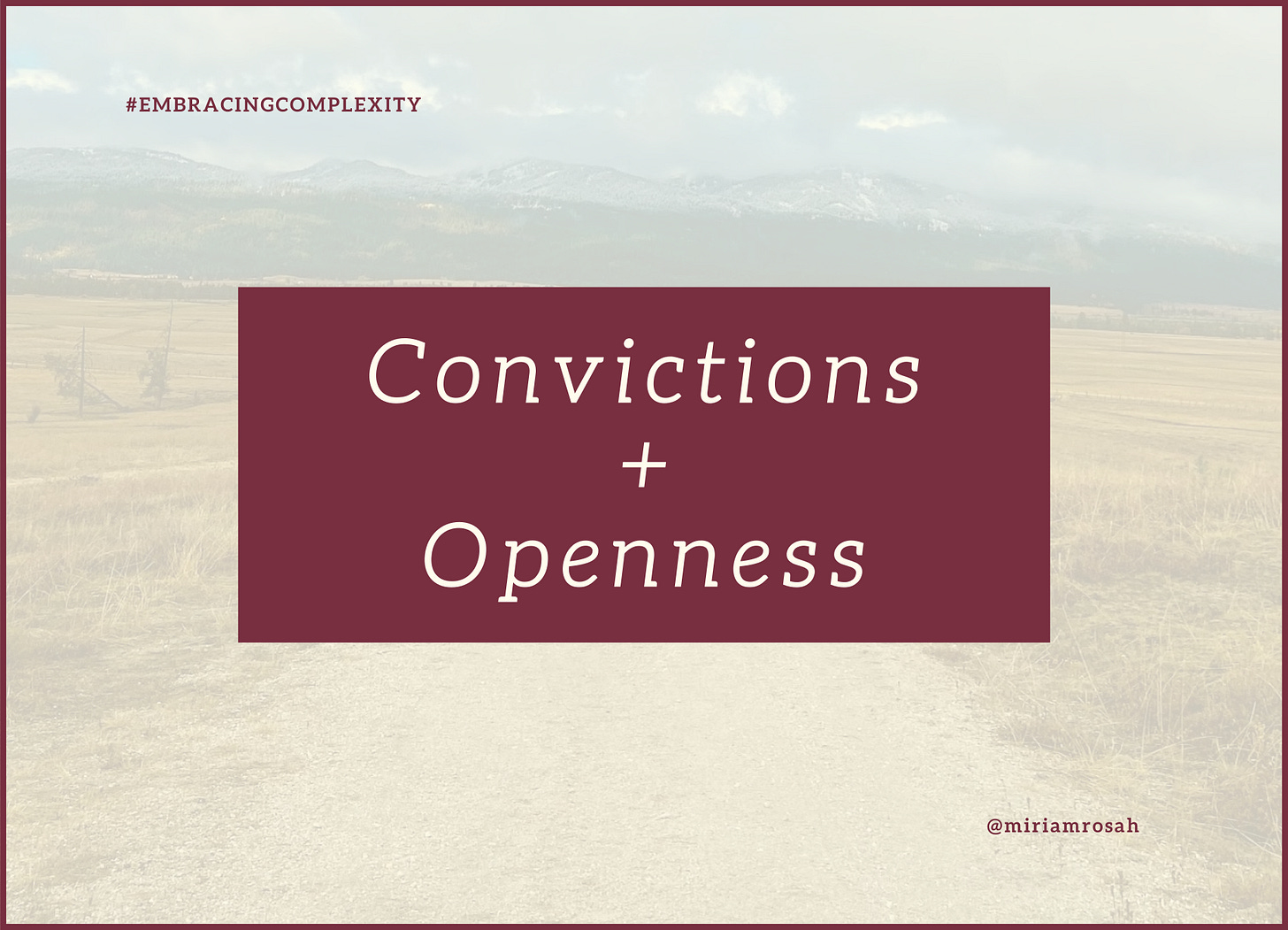It’s been several years since I moved out of the house I grew up in; since then, I’ve only visited every few months. It seems like every time I’m back, my mother has changed something about the house. A new coat of paint on the walls in the dining room. The furniture rearranged in the living room. Different artwork above the window in the kitchen. The interesting thing is that I often don’t notice these things until she points them out. As much as the surface may change, it’s still the same house, with the same rooms, and the same framework. That’s the part that matters.
Have you ever changed your opinion and been accused of not having convictions? It’s simpler to decide what we’re going to believe and just hold the line, no matter what. But, the world isn’t simple. Perhaps the convictions are like the framework of the house—solid, relatively unchanging, the defining structure—and our openness is simply how the surface changes.
One of my agriculture teacher friends from Illinois has changed many of his ideas over the last five years I’ve known him; his convictions, though, are still as recognizable as ever. Born and raised in a small farming town, he found himself in a very different teaching environment at a new agriculture department in an urban center. As he got to know his students, they taught him about what was important to them, what they needed from a teacher and an agriculture class, and the struggles they faced. Day by day, month by month, he realized that if he was going to stick to his convictions about valuing people and equipping his students, he would have to change how he taught his classes and advised the FFA members. He didn’t change his values; instead, he changed how he put them into practice.
For my friend to disregard his environment when planning agriculture courses and organizing FFA events for the sake of “sticking to his convictions” would be a failure to live up to his purpose as a teacher and advisor. He saw this, updated his information, and adjusted accordingly. This didn’t mean he lost his own identity or felt the need to change all of his personal opinions in order to “fit in” with the people around him. By understanding his surroundings, he was better able to stick to those convictions while being open to the best way to serve the people he was called to serve. The framework of his convictions didn’t change; the surface did.
Are you stubbornly holding on to ideas that you think are grounding convictions, but are actually just surface ideas that no longer serve you or the people in your life? It’s easy to do; updating our conception of the world requires intentional thought and deliberate action. Yet, when we choose to be open to the ways our world is changing, we become better equipped to hold true to our convictions in new environments. Simply changing our opinions to match the people around us isn’t the move, either. The stronger the foundation of the house, the less it’s shaken during renovations.
How do we know when it’s time to update our worldview? It requires some self-awareness, a confidence in our values, and an open mindset. Here’s a couple questions that help:
What do I value?
This is where self-awareness comes in. Do you value people? Look for ways to do that, even if they’re different than you’re used to. Hold the value close, but search for new ways to live it out.
Why do I value it?
When we know the reason behind our convictions, it can help us know if they’re worth keeping or if it’s time to let them go. Asking the why question can reveal if a value is selfish, no longer serving us or the people around us, or if it needs to look different in a new season of our lives.
What do I not fully understand?
Asking this question, especially when we encounter people whose experiences and areas of expertise differ from ours, will help us know how to build on our convictions. Living life with a posture of openness will show us those new ways to live out our convictions, pull back the curtain on why it’s important to us, and present new values we may never have even thought of if we didn’t listen to the people around us.
Convictions aren’t always evidence of close-mindedness; openness isn’t always evidence of shallowness. My teacher friend is one of the most grounded people I’ve met because of his convictions, and one of the most open-minded people I’ve met because of his willingness to listen to new ideas. As we make our way through life, let’s remember to build a strong foundation of convictions so we can renovate to our heart’s content with openness.
What’s one step you’ll take to be more open today? Share your thoughts in the comments below or tag me on social media at @nffaevp and @miriamrosah and use the hashtags #EmbracingComplexity and #FFA21.




